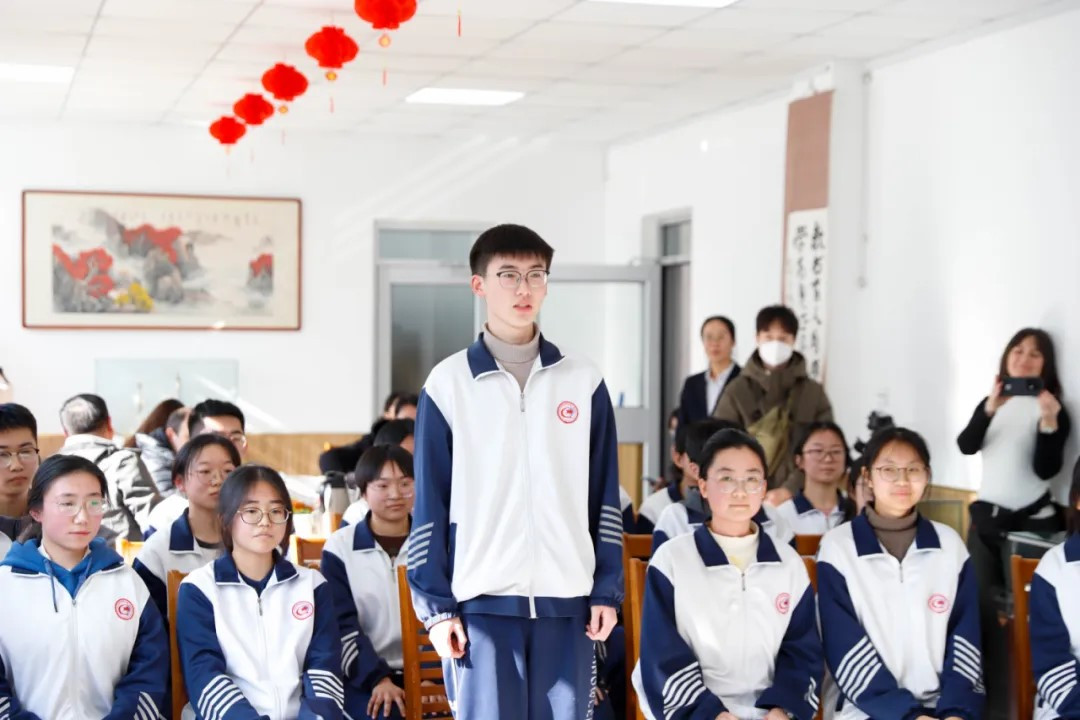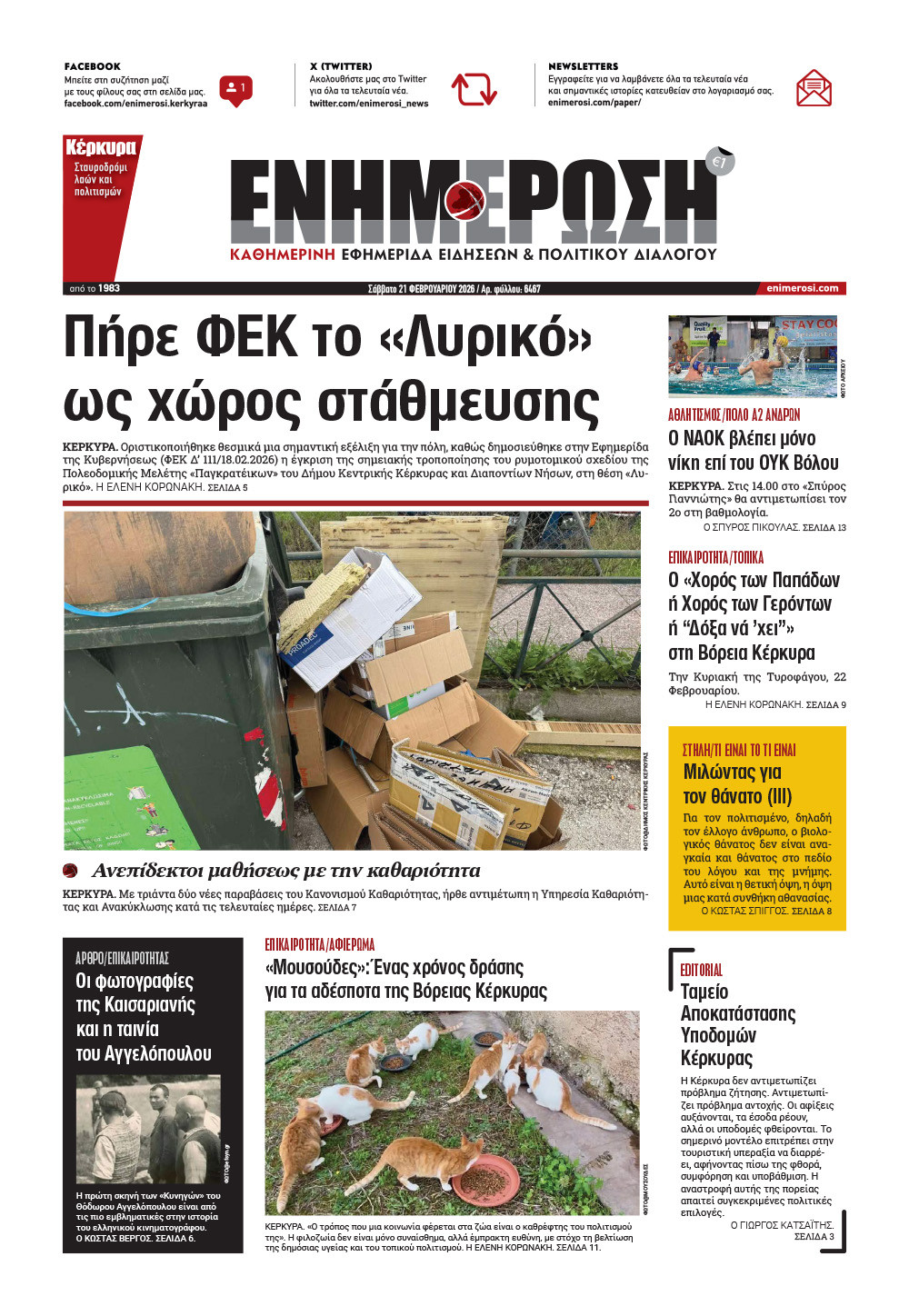Ionian University in China for "Intangible Cultural Heritage New Year΄s Day"

QINGDAO. How the report on the visit of Dean Andreas Floros, head of the university delegation, to the depths of China was presented.
How Professor Vlachopoulos found Mao's Little Red Book, and the reaction of the Chinese.
When the morning light of January 8 shines on the earth, the air on the ninth day of the twelfth lunar month is filled with the flavour of the New Year. Foreign friends who 'do as the Romans do in Rome' are quite impressive. Among them are a number of heavyweight scholars from the Ionian University and the UNESCO Steering Committee for the Protection of Cultural Heritage. They were invited by the Global Sinology Centre to come to Qingdao to participate in the 'China in Intangible Cultural Heritage Year' and the 'China in Classics' series of dialogue activities on 'Greek Civilisation.' Let us explore the collection of intangible cultural heritage, taste local delicacies, write blessings for the Chinese New Year, and experience the vibrant flavour of the New Year.

Upon entering the gathering in Pali, the Dean of the Ionian University, Andreas Floros, Stavros Katsios, head of the UNESCO Chair Steering Committee for the Protection of Cultural Heritage and director of the Greek Sinology Centre at the Ionian University, and others walked along the bustling stalls. The stalls were as colourful as the multicoloured noodles; the candies were sweet and refreshing, the roasted seeds and nuts were aromatic, the red mats displayed exquisite craftsmanship, and the cooked food tempted the greedy.
In their eyes, coming to the lively traditional market was like stepping into a new world, remarking that they could buy anything here! Soon, these 'foreigners,' just like the local villagers and residents, integrated into the local life. They joined the bustling market, bought innovative snacks, and ate while shopping, such as the fragrant seafood braised cakes and the rich lamb soup. The warmth of the soup and the handmade steamed buns allowed the Greek friends to savour the charm of an authentic Chinese New Year.
Walking through the market, they couldn't resist buying high-quality and affordable goods. From time to time, they bargained with stall owners over prices and showed interest in the antique items at the stalls. Professor Stefanos Vlachopoulos from the Department of Foreign Languages, Translation, and Interpreting at the Ionian University found a 'Little Red Book' published in the last century. After purchasing it, he held the 'Little Red Book' to his chest with both hands and then carefully raised it. Many stall owners laughed and joked, saying: 'We've internationalised our business.' In the end, almost everyone had large and small bags of 'trophies,' reaping a full harvest.
The Spring Festival couplets and New Year painting stalls were even more joyous. There was a dazzling array of paintings and cultural creations from the Tianjin Publishing and Media Group, the Tianjin Yangliuqing Painting Society, and Jiaonan New Year paintings from the new district. The large table was laid out, with brushes and ink flowing freely. Calligraphers splashed ink, writing couplets and blessing characters filled with goodwill, complementing the New Year paintings, lanterns, and pendants, making the New Year atmosphere 'explosive.'
The scholars enthusiastically acted as 'small stall owners,' with shouts and laughter intertwined. Everyone held the festive New Year merchandise, and the camera clicked continuously to capture this warm and joyful moment.

In response to questions, Professor Stavros Katsios stated that the collection of intangible cultural heritage is 'alive' and represents a particularly valuable cultural and customary legacy that has been preserved in modern China while keeping pace with the times. Its diversity plays a unique role and constitutes the shared cultural wealth of humanity, deserving appreciation and protection. During the exchange, pupils actively asked questions and interacted enthusiastically.
As part of the 'Year of China in Intangible Cultural Heritage' and the 'Chinese and Greek Civilisations in Classics' dialogue series, the Global Sinology Centre will continue organising the academic dialogue 'Chinese and Greek Civilisation in Classics' and the 'Spring Festival Culture and Civilisation Mutual Learning Seminar.' Other activities include the Tianjin Ancient Books Publishing House's exhibition, 'Tracing Cultural Resonance from Ancient Classics,' as well as the New Year Picture Exhibition in the West Coast New Area and a series of related events.
As a crucial bridge and close link in the field of international cultural exchanges, the World Sinology Centre organises and guides Greek scholars to delve deeply into China's rural markets, vibrant and lively scenes from the grassroots. This allows foreign friends to genuinely experience and touch the warmth and texture of Chinese culture, perceiving the unique nuances of Chinese heritage in the most vivid and grounded way.
The World Sinology Centre will seize this series of dialogue events as a significant opportunity to continue its efforts on the broad stage of international cultural exchanges, providing ongoing momentum for the mutual integration of multiculturalism and enhancing the intellectual connection among people of all nations.












